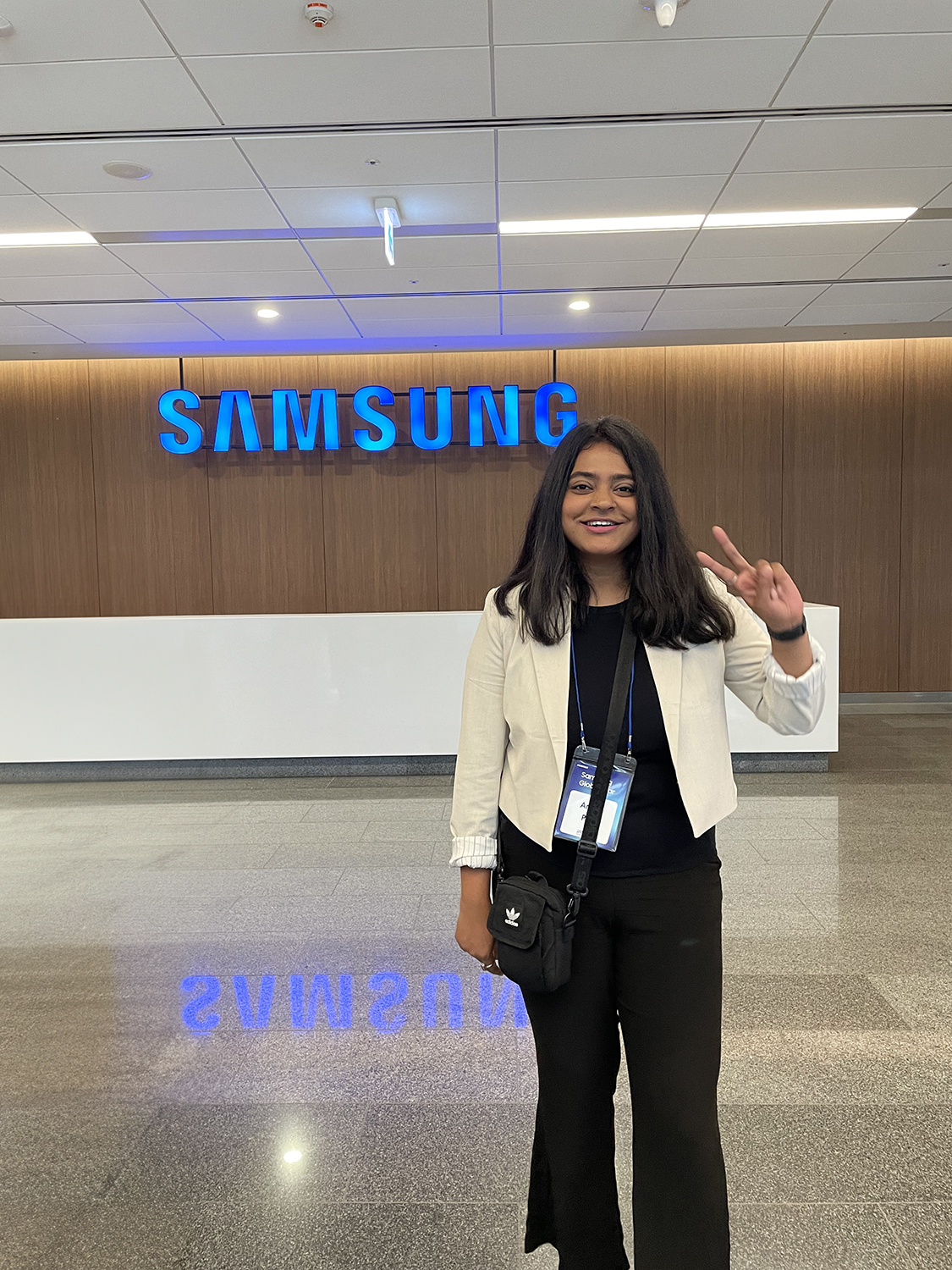
Students in Drexel’s College of Engineering have limitless opportunities to
apply classroom lessons to real-world practice. From co-ops and internships
to faculty-mentored research projects, Drexel engineers at every level of
study routinely bridge the gap between academic theory and practical
application.
Doctoral student Ankita Paul recently completed an internship that
exemplifies this experiential approach. Paul, who studies artificial
intelligence (AI), spent the summer as an AI Strategy Scientist Intern for
Samsung Semiconductor Inc. in San Jose, California.
In this role, Paul explored ways AI and machine learning could enhance
efficiency and productivity in Samsung's semiconductor manufacturing
operations. She helped to design strategy projects showing how deep learning
algorithms could be implemented in each manufacturing sub-process. She
assessed the data, resources and challenges involved in integrating AI into
areas like abnormality detection, cost optimization and more.
While on the job, Paul learned the importance of cross-functional
collaboration for complex solutions, and the value of institutional
knowledge that can come with working at a company with a long history.
"Some challenges you're facing now, maybe a team faced two quarters back, so
you can learn from them instead of reinventing the wheel," she said.
At the same time, Paul was excited to see Samsung's commitment to long-range
research.
“In a lot of ways, the pressure for profit can drive industry to pursue
projects that may be marketable in the next couple of years,” she said. “I
was impressed that Samsung had an interest also in niche technologies which
did not have any chance of generating any revenue for the next 10 years or
so.”
A highlight of Paul's internship was visiting Samsung's R&D facilities
and headquarters in Seoul, South Korea for 7 days. There she toured
semiconductor manufacturing plants, met researchers driving Samsung's AI
strategy, and attended the launch event for the Galaxy Z Flip phone. Paul
also enjoyed cultural experiences like a Korean cooking class and tour of
Seoul.
Now back at Drexel, Paul is focusing her research on bridging theoretical
and applied AI. Her newest research project centers on using machine
learning for real-time system learning.
Paul hopes to continue pursuing research with real-world relevance. "I love
how academia is more flexible in what you want to work on without profit
pressure," she said. "But I also loved how useful applied research can be,
so I'm focused on projects that can bridge theory and practice."
According to Paul, experiential learning is invaluable for students. "An
intersection between academia and business can accelerate innovation on both
sides," she said. "My internship gave me that bigger picture view."